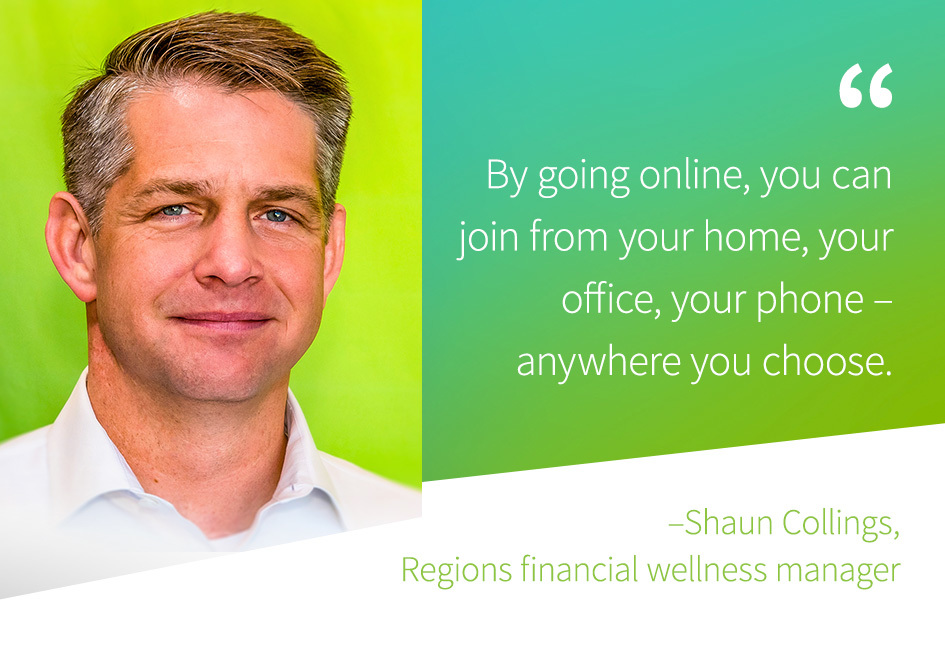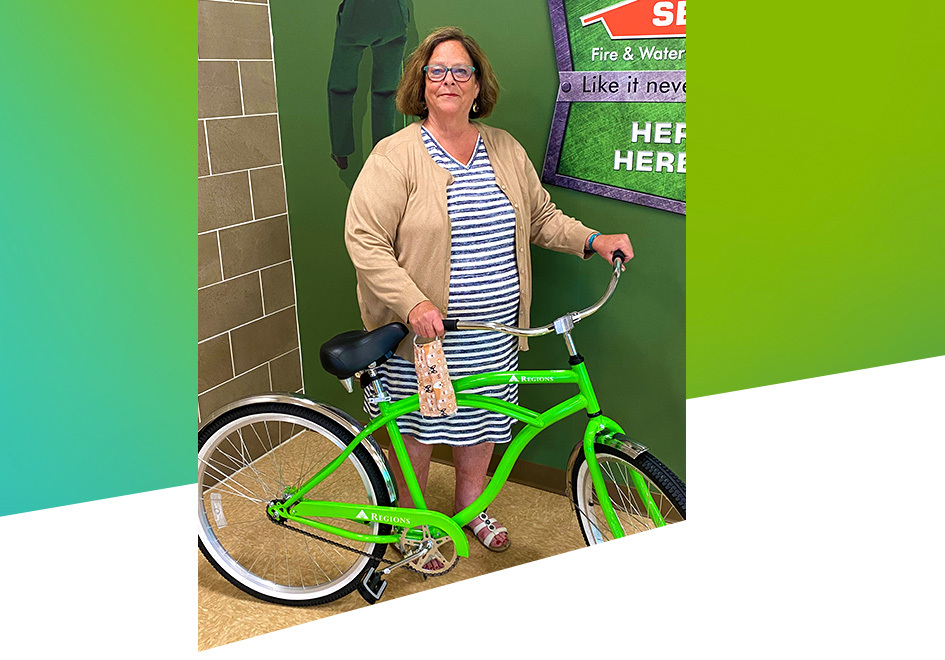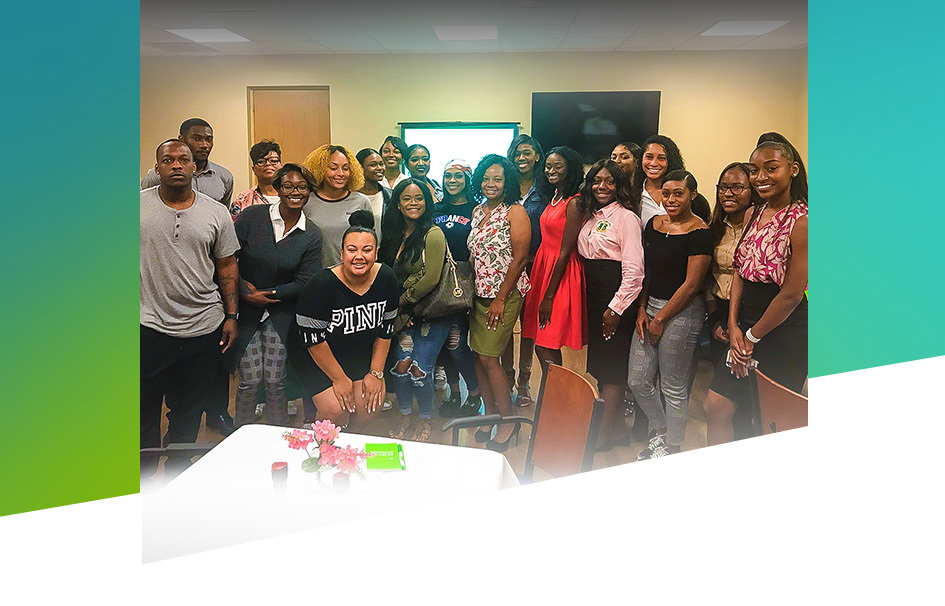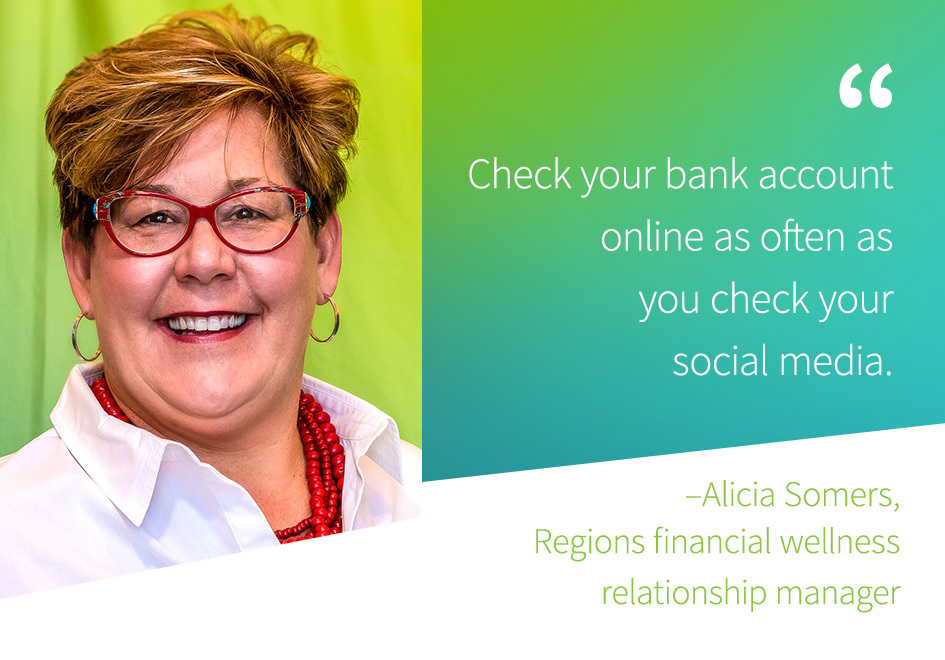During normal times, Rob Lindsey oversees an agile team, spread across 15 states, that’s focused on one goal: educating adults to make more informed decisions about their finances.
The settings? College campuses. Business offices. Community centers. Virtually anywhere.
Since March, virtual has been the keyword.
“How we connect with business owners, decisionmakers and organizations, including nonprofits, is different since the arrival of COVID-19,” said Lindsey, financial wellness program manager for Regions Bank. “We’re doing this with podcasts, with digital learning and with online presentations, making sure people stay on top of their finances while staying safe.”
These examples show how Regions’ financial wellness pros stay focused on their goal, no matter what.
At Georgia State, digital resources help students, alumni
A longstanding commitment to provide Georgia State University students, faculty and alumni with tools for financial management has only grown since the pandemic’s arrival.
Shaun Collings is a Regions financial wellness manager serving Georgia and the Carolinas.
“We previously had a program set up with GSU, but COVID-19 has changed how we do things,” Collings explained. “Although we can’t do sessions in person, the result is that we’ve been able to impact more people. By going online, you can join from your home, your office, your phone – anywhere you choose.”
The in-person events would draw 50 students on campus, Collings said. But they required more manpower and logistics. “Now, more people are participating, and we are providing learning sessions more frequently. And it’s not just Georgia State, whose people are dynamic and great to work with. But we’ve been able to provide financial wellness for new employees of a logistics company.”
For the most recent webinar, more than 200 people registered – a four-fold increase.

Twice a month, Collings provides a custom-built financial education program for students, faculty and staff. Meanwhile, there is another customized program aimed at alumni, which is updated each month.
Ryan Camon, student relations coordinator at Georgia State, said Regions’ Next Step library of financial education resources can potentially reach up to 145,000 alumni and 52,000 studentsas many adjust to an economy in a new-normal environment.
“Regions’ ability to pivot to WebEx sessions has really been important for us,” Camon said. “We’re able to offer students and alumni weekly financial wellness offerings during an unprecedented pandemic when money management has never been more important.”
Camon noted the resources are valuable to the student population because Georgia State reaches a lot of students who are the first from their family to attend college.
“Establishing a knowledge base about financial literacy says a lot about Georgia State’s mission,” he said. “Therefore, Regions coming in, providing financial education from professionals who do this every day, has a real impact because of their consistent presence on campus – and now, the digital world.”
Georgia State includes Next Step offerings on the COVID-19 page of the university’s website. And Dave Cohen consistently links new financial wellness seminars on a web page for alumni. Cohen is best known as Georgia State’s radio play-by-play man in athletics for Panthers football, basketball and baseball.. But he’s also the website coordinator for Alumni Affairs at pantheralumni.com
“First and foremost, what sets Regions apart is the variety of financial education offerings,” Cohen said. “Since the virus has put us in the situation we’re in, we’re able to offer programming in a virtual world that’s readily available. If you miss the original 60-minute webinar at noon on Tuesday, you can watch it at 4 p.m. on Wednesday, or join the monthly custom WebEx.”
At Servpro, associates are matched with local Regions bankers
Based in Gallatin, Tennessee, Servpro has earned a reputation as an industry leader for commercial and home cleanups.
“In 2015, we revamped our wellness program to be more holistic, which included financial wellness,” said Tina Demonbreun, Benefits Analyst for Servpro Industries. “We reached out to Regions, our banking partner, to lead this.”
Dianne Spencer, financial wellness relationship manager for Regions in Nashville, had implemented a customized Financial Wellness Program for Servpro employees that included live/in-person Quarterly Next Step Seminars. In return, Servpro awarded employees wellness points for participation. Attendance also earned a chance to win a LifeGreen Regions bike at an end-of-the-year drawing.

Then came the pandemic.
“We began canceling live events on March 13,” Spencer said. “So, we looked for other ways to continue and reach everyone. Because of the need, we expedited the webinars and got them rolling immediately through virtual access.”
In addition, Servpro connects Regions bankers with employees who seek customized help with their finances. The offer is available across Servpro’s footprint.
Spencer’s team of bankers serve other Middle Tennessee companies, including an apartment management company and health insurance agency, giving Regions’ local financial wellness team statewide reach to more than 12,000 people who work for those clients alone.
“In the recent past when we were able to host in-person seminar events for our Next Step clients, we conducted a seminar on homeownership. Afterwards, before I even reached the parking lot, they were calling our bankers with follow-up questions,” Spencer said.
Across the nation, Alpha Kappa Alpha Sorority stays financially fit
A financial wellness collaboration was established in 2018 between Regions, Tennessee State University and Alpha Kappa Alpha Sorority. Now, Regions financial wellness resources are available to all of the sorority’s chapters nationwide — to both students and alumnae.
“The partnership came at the request of Dr. Glenda Glover, international president of Alpha Kappa Alpha Sorority, Inc. and president of Tennessee State University,” said Latrisha Jemison, regional community development and partnerships manager for Regions Bank. “One of the current focuses of the organization is ‘Building Your Economic Legacy.’
Alpha Kappa Alpha made pro-active plans to emphasize financial planning, asset accumulation and wealth building, including focusing on savings and investments for students, alums and the general public.
The focus on individual chapters is custom designed based on specific needs and requests.
 Members of Tennessee State University’s Alpha Kappa Alpha sorority smile for the cameras after a Regions financial education seminar in 2018.
Members of Tennessee State University’s Alpha Kappa Alpha sorority smile for the cameras after a Regions financial education seminar in 2018.
“We started a relationship with the Orlando chapter well before COVID-19,” explained Jorge Gonzalez, a local financial wellness relationship manager for Regions. “After that, they wanted to go digital.”
As many as 150 sorority members are expected to register for the August webinar. To help them achieve their financial goals, Gonzalez’ team is working on emails to identify economic stress points that attendees address as their most significant concerns.
“Until then, we really can only guess about what stresses them,” Gonzalez added. “After the survey comes back, we’ll be able to pinpoint concerns, and participation and engagement will only increase We have people from across the world participating. We’re also offering individual seminars, available in English and Spanish. And the numbers continue to climb thanks to WebEx and Webinar series.”
Tools, tips and 16 Next Step webinars
From her home in northeast Florida, Alicia Somers leads a Next Step session on How to Bank Without Visiting a Branch. The session includes a live chat and a Q&A during which Somers addresses specific concerns.
A Regions financial wellness relationship manager, Somers offers 10 ways technology can make banking easier and step-by-step tips on making mobile deposits. “It’s all about convenience,” she explained.
And safety. She directs her audience to Regions’ Lock-It feature, which prevents debit cards from being used, either in person or online, if stolen (or whenever people wish to temporarily lock them). She leads web viewers to Next Step on regions.com, which has downloadable templates to budget and track expenses, informative articles and calculators to help reach savings goals.

“Check your bank account online as often as you check your social media,” Somers said before giving a quick tutorial on checking credit reports.
In all, there are 16 free Next Step webinars available at regions.com.
“Next Step has the digital resources to help anyone, whether you’re a college student, saving up for your first home or a business owner looking for useful resources during these unusual times,” said Joye Hehn, community financial education manager for Regions. “You can take control and chart your finances for a stronger future, and you don’t have to be a Regions’ customer to do this.”
Whether you’re facing financial uncertainties or simply planning ahead, Next Step’s Financial Wellness Today collection offers tips, tools and resources designed to help you stay on track and safeguard your future. Learn more at regions.com/nextstep.